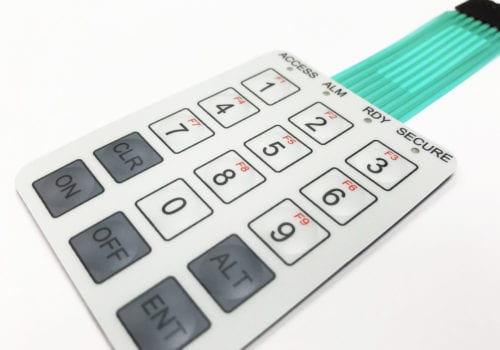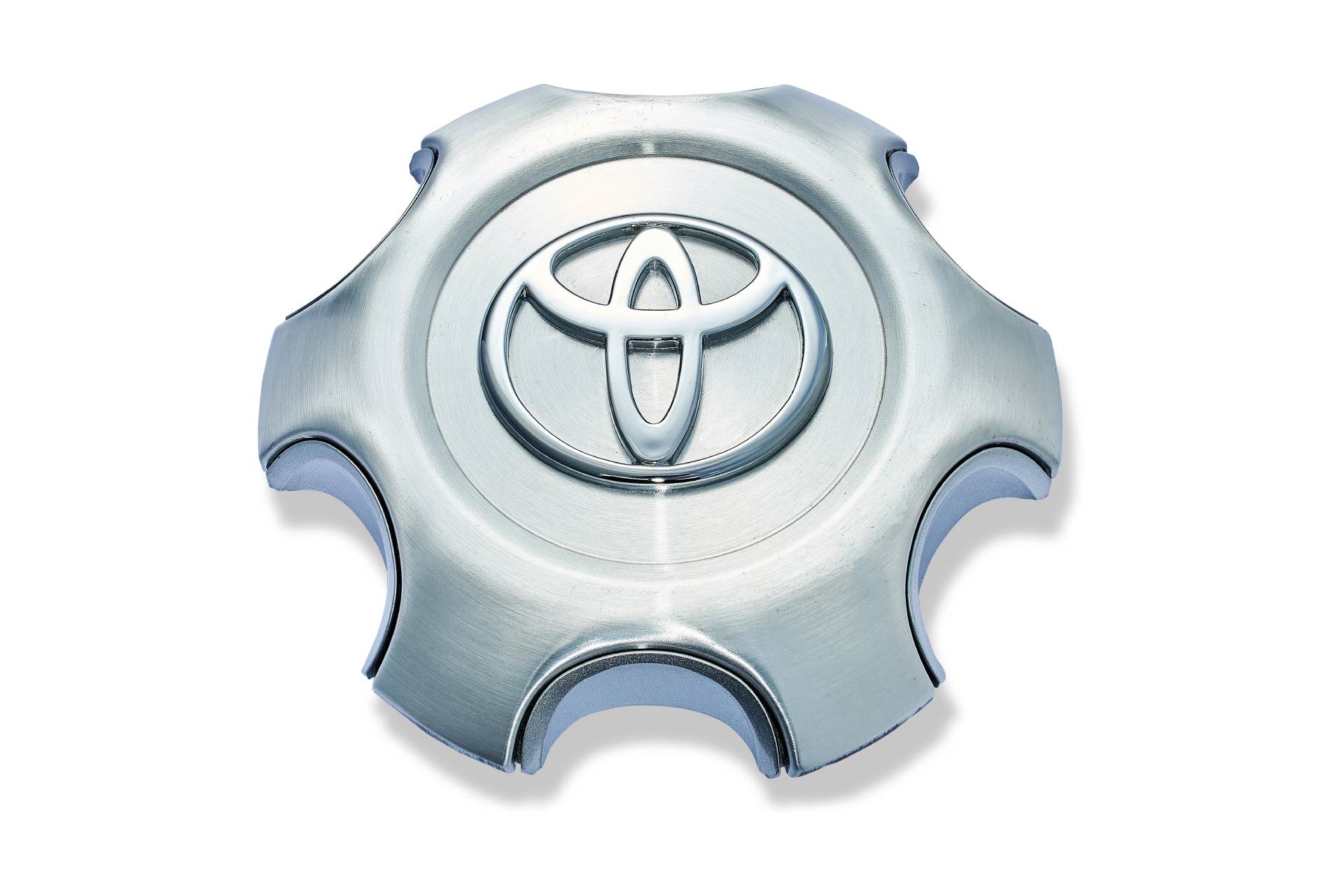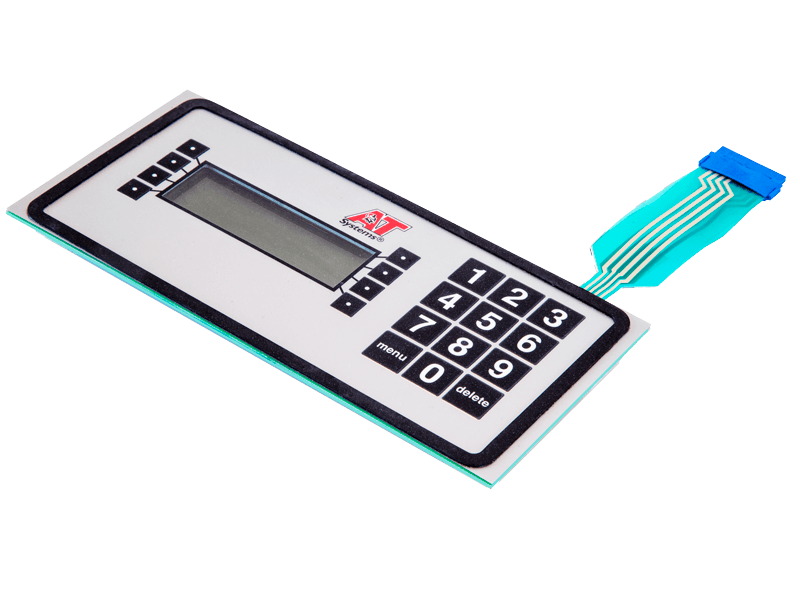Why Membrane Switches Are the Perfect Solution for Industrial Equipment
Why Membrane Switches Are the Perfect Solution for Industrial Equipment
Blog Article
Recognizing the Value of Membrane Switches in User Interfaces
Membrane switches are indispensable elements in the layout of effective customer interfaces, promoting not only capability but additionally boosting visual allure and user interaction. As we check out the future fads and numerous benefits connected with Membrane innovation, it becomes clear that these buttons are extra than just elements; they represent a merging of advancement and functionality.
What Are Membrane Buttons?

The spacer layer, which has adhesive residential or commercial properties, enables the separation of the circuit layer from the overlay, guaranteeing that the button continues to be in a non-activated state until pushed. When stress is put on the overlay, it compresses the spacer layer, connecting the gap and finishing the circuit in the underlying layer. This style not only lowers the physical space needed for typical mechanical buttons but also boosts the resilience of the tool, as Membrane buttons are typically immune to dust, moisture, and other ecological aspects.
Generally discovered in applications ranging from consumer electronic devices to medical tools, Membrane switches are integral to contemporary innovation, providing a effective and user-friendly user interface that straightens with contemporary style needs.
Benefits of Membrane Switches
While various button innovations exist, Membrane Switches offer unique benefits that make them especially preferable in numerous applications. One of the primary benefits of Membrane buttons is their compact layout, which allows for space-saving implementations in gadgets where property is restricted. Their thin profile not only improves aesthetic appeal however additionally promotes light-weight building.
An additional substantial advantage is their resistance to ecological variables. Membrane switches are normally secured versus wetness, dust, and impurities, making them perfect for usage sought after settings, such as clinical devices and industrial devices. This longevity prolongs the life-span of the switch, reducing maintenance costs and boosting dependability.
Moreover, Membrane switches can be customized to fulfill particular layout needs, integrating one-of-a-kind graphics and colors that enhance user communication. Their tactile feedback choices can likewise be tailored to give a rewarding user experience. In addition, Membrane switches are cost-effective, particularly in high-volume applications, as they can be produced successfully.
Applications in Numerous Industries

In the customer electronic devices field, Membrane switches prevail in gadgets such as microwaves, washing makers, and remote controls. Their tactile responses and visual choices improve user experience while offering a smooth, modern-day look. Additionally, automotive suppliers use Membrane buttons in dashboard controls and infotainment systems, where space is restricted, and individual engagement is important.
Furthermore, the industrial field leverages Membrane buttons in control panels for machinery and devices, allowing for instinctive procedure in typically severe atmospheres. Their resistance to chemicals and wetness guarantees long life and dependability in these applications. Overall, the versatility of Membrane Switches adds significantly to their extensive usage, making them indispensable in various technical domains.
Layout Considerations for Membrane Switches

When developing Membrane buttons, several vital considerations have to be taken right into account to ensure optimum performance and user experience. Firstly, the option of materials is important; choosing durable, top quality substrates pop over here can improve the button's long life and resistance to ecological aspects such as moisture and temperature fluctuations.
Second of all, the layout of the graphic overlay must focus on clearness and simplicity of usage. Icons and text need to be clear, and the design must help with user-friendly interaction (membrane switches). In addition, tactile responses is necessary; incorporating a responsive dome or other mechanisms can enhance the user experience by giving physical confirmation of activation
One more crucial element is the switch's electrical performance. Designers should make sure that the conductive traces are effectively made to reduce resistance and stay clear of signal disturbance. This includes assessing the required actuation force and making certain compatibility with the electronic elements they will user interface with.

Future Patterns in Membrane Innovation
As technology remains to advancement, Membrane buttons are poised to progress considerably, driven by technologies in products and manufacturing methods. One emerging pattern is the incorporation of innovative products, such as conductive inks and adaptable substratums, which enhance durability and minimize the total weight of Membrane buttons. These products not just improve the tactile reaction however also permit the layout of buttons that can withstand harsher ecological problems.
Furthermore, the integration of touch-sensitive technologies is transforming conventional Membrane Switches into more interactive individual interfaces. Capacitive touch sensors embedded within Membrane button panels can provide a read what he said more responsive and intuitive user experience, lining up with the growing need for sleek, modern designs in consumer electronics.
Furthermore, improvements in printing strategies, such as electronic and 3D printing, make it possible for quick prototyping and modification of Membrane buttons. This versatility enables makers to react quicker to market needs and consumer preferences.
Lastly, sustainability is becoming a significant focus, with suppliers discovering eco-friendly products and procedures. As these patterns unfold, the future of Membrane modern technology assures improved performance, aesthetic allure, and ecological obligation, solidifying their role in innovative interface across various industries.
Verdict
In final thought, Membrane Switches stand for an important component in the layout of individual interfaces, combining functionality with visual versatility. Their advantages, consisting of sturdiness and resistance to environmental variables, make them appropriate for diverse applications throughout different industries. Thoughtful design factors to consider improve user communication and experience. As advancements in modern technology continue, the advancement of Membrane buttons is expected to more refine interface, driving advancement and enhancing use in a progressively complex technological landscape.
Membrane buttons are essential parts in the layout of effective individual interfaces, promoting not only functionality however additionally boosting aesthetic charm and individual communication.Membrane Switches offer as an important element in various customer interfaces, facilitating a seamless interaction in between individuals and digital tools.While numerous switch innovations exist, Membrane Switches offer unique benefits that make them especially preferable in numerous applications.In addition, Membrane buttons can be tailored to fulfill specific design requirements, incorporating distinct graphics and colors that enhance user interaction.In conclusion, Membrane Switches stand for an essential part in the style of individual interfaces, integrating performance with aesthetic flexibility.
Report this page